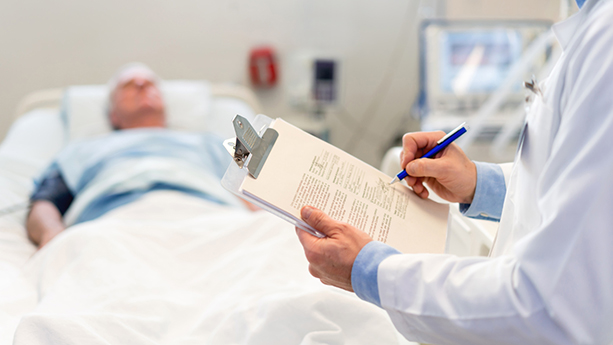An estimated 14 million people in the United States have an alcohol use disorder, according to the 2014 National Survey on Drug Use and Health. Some of them will develop alcoholic liver disease (ALD) as a result.
The liver performs a vital function as the body’s primary filter for removing harmful substances—including alcohol—from the bloodstream. If you consume more alcohol than your liver can break down, it can damage or kill liver cells and cause scarring.
In the Sutter Health network, highly trained liver specialists are advancing the care of alcoholic liver disease (ALD) through research and the development of new therapies and treatments of liver damage.
Types of ALD
Alcoholism causes three types of liver disease, but ALD does not necessarily progress through each one as in stages. You may develop cirrhosis without having had alcoholic hepatitis first.
- Alcoholic Fatty Liver Disease — An early consequence of excessive alcohol consumption that is reversible with abstinence.
- Alcoholic Hepatitis — Marked by fat deposits in liver cells and inflammation and mild scarring of the liver. May be accompanied by symptoms that include nausea, fever, abdominal pain and jaundice.
- Alcoholic Cirrhosis — Scar tissue replaces healthy soft liver tissue, and may cause nausea, abdominal pain, fever and jaundice.
Diagnosis of ALD
Liver specialists begin by gathering a complete clinical history, including alcohol habits, and a physical examination to check for inflammation of the liver and other signs of liver disease. Blood tests called liver function tests show how well your liver is performing its various functions. A liver biopsy may be necessary to check for the presence of liver cell death due to steatosis (excessive fat deposits in liver cells caused by alcohol and obesity).
Treatment for ALD
The foundation of alcoholic liver disease treatment is abstinence from alcohol. Our specialists may recommend an alcohol recovery program to help your liver recover or medication and therapy to manage complications.
If your liver does not recover following abstinence, you may be referred to Sutter’s renowned Barry S. Levin, MD, Department of Transplant at California Pacific Medical Center in San Francisco.












